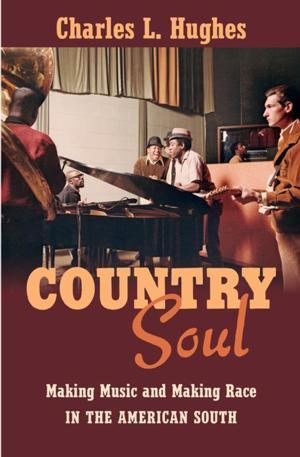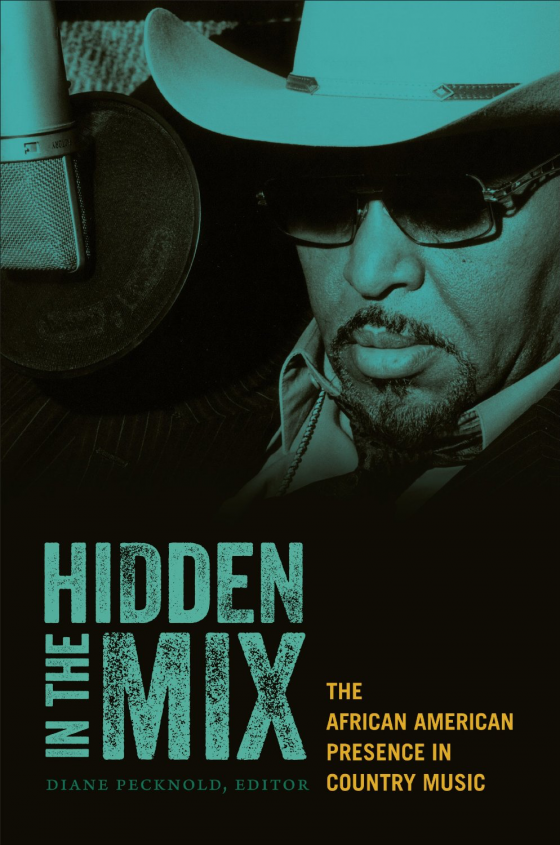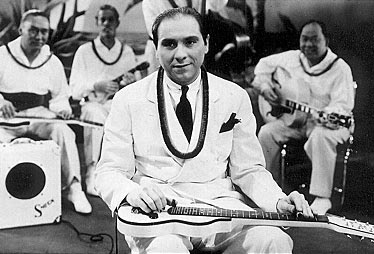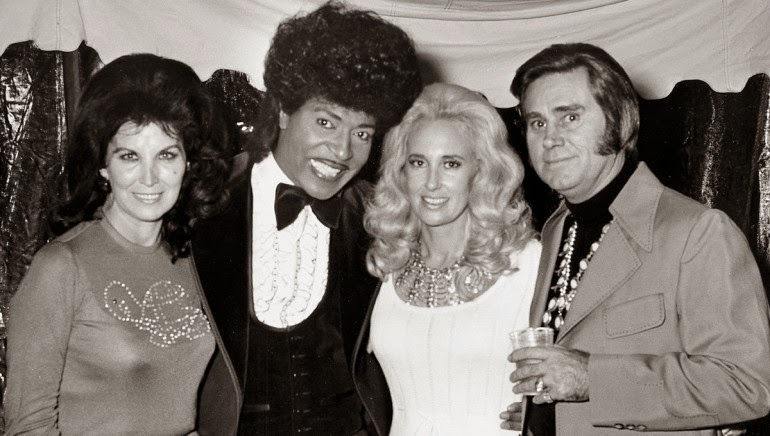O.B. McClinton You can take a black guy to Nashville from right out of the cotton fields with bib overalls, and they will call him R&B. You can take a white guy in a pin-stripe suit who’s never seen a cotton field, and they will call him country. ~ O. B. McClinton | |
- E-mail - orgNote -  Report post to moderator Report post to moderator |
Lisa Torres You can take a black guy to Nashville from right out of the cotton fields with bib overalls, and they will call him R&B. You can take a white guy in a pin-stripe suit who’s never seen a cotton field, and they will call him country. ~ O. B. McClinton | |
- E-mail - orgNote -  Report post to moderator Report post to moderator |
Saints Of Havana You can take a black guy to Nashville from right out of the cotton fields with bib overalls, and they will call him R&B. You can take a white guy in a pin-stripe suit who’s never seen a cotton field, and they will call him country. ~ O. B. McClinton | |
- E-mail - orgNote -  Report post to moderator Report post to moderator |
Country Soul: Making Music And Making Race In The American South (2015) You can take a black guy to Nashville from right out of the cotton fields with bib overalls, and they will call him R&B. You can take a white guy in a pin-stripe suit who’s never seen a cotton field, and they will call him country. ~ O. B. McClinton | |
- E-mail - orgNote -  Report post to moderator Report post to moderator |
You can take a black guy to Nashville from right out of the cotton fields with bib overalls, and they will call him R&B. You can take a white guy in a pin-stripe suit who’s never seen a cotton field, and they will call him country. ~ O. B. McClinton | |
- E-mail - orgNote -  Report post to moderator Report post to moderator |
From Honolulu To Nashville: Hawaiian Music and Country
You can take a black guy to Nashville from right out of the cotton fields with bib overalls, and they will call him R&B. You can take a white guy in a pin-stripe suit who’s never seen a cotton field, and they will call him country. ~ O. B. McClinton | |
- E-mail - orgNote -  Report post to moderator Report post to moderator |
Melveen Leed You can take a black guy to Nashville from right out of the cotton fields with bib overalls, and they will call him R&B. You can take a white guy in a pin-stripe suit who’s never seen a cotton field, and they will call him country. ~ O. B. McClinton | |
- E-mail - orgNote -  Report post to moderator Report post to moderator |
Stoney Edwards You can take a black guy to Nashville from right out of the cotton fields with bib overalls, and they will call him R&B. You can take a white guy in a pin-stripe suit who’s never seen a cotton field, and they will call him country. ~ O. B. McClinton | |
- E-mail - orgNote -  Report post to moderator Report post to moderator |
Earl White Stringband You can take a black guy to Nashville from right out of the cotton fields with bib overalls, and they will call him R&B. You can take a white guy in a pin-stripe suit who’s never seen a cotton field, and they will call him country. ~ O. B. McClinton | |
- E-mail - orgNote -  Report post to moderator Report post to moderator |
Bobby Womack You can take a black guy to Nashville from right out of the cotton fields with bib overalls, and they will call him R&B. You can take a white guy in a pin-stripe suit who’s never seen a cotton field, and they will call him country. ~ O. B. McClinton | |
- E-mail - orgNote -  Report post to moderator Report post to moderator |
Johnnie Taylor You can take a black guy to Nashville from right out of the cotton fields with bib overalls, and they will call him R&B. You can take a white guy in a pin-stripe suit who’s never seen a cotton field, and they will call him country. ~ O. B. McClinton | |
- E-mail - orgNote -  Report post to moderator Report post to moderator |
Vicki Vann You can take a black guy to Nashville from right out of the cotton fields with bib overalls, and they will call him R&B. You can take a white guy in a pin-stripe suit who’s never seen a cotton field, and they will call him country. ~ O. B. McClinton | |
- E-mail - orgNote -  Report post to moderator Report post to moderator |
Joe Simon You can take a black guy to Nashville from right out of the cotton fields with bib overalls, and they will call him R&B. You can take a white guy in a pin-stripe suit who’s never seen a cotton field, and they will call him country. ~ O. B. McClinton | |
- E-mail - orgNote -  Report post to moderator Report post to moderator |
Donna Summer & Eddie Rabbitt You can take a black guy to Nashville from right out of the cotton fields with bib overalls, and they will call him R&B. You can take a white guy in a pin-stripe suit who’s never seen a cotton field, and they will call him country. ~ O. B. McClinton | |
- E-mail - orgNote -  Report post to moderator Report post to moderator |
A Taste Of Honey You can take a black guy to Nashville from right out of the cotton fields with bib overalls, and they will call him R&B. You can take a white guy in a pin-stripe suit who’s never seen a cotton field, and they will call him country. ~ O. B. McClinton | |
- E-mail - orgNote -  Report post to moderator Report post to moderator |
The Mavericks (has Latino members, including the lead singer who is Cuban) You can take a black guy to Nashville from right out of the cotton fields with bib overalls, and they will call him R&B. You can take a white guy in a pin-stripe suit who’s never seen a cotton field, and they will call him country. ~ O. B. McClinton | |
- E-mail - orgNote -  Report post to moderator Report post to moderator |
Ray Charles & Travis Tritt
You can take a black guy to Nashville from right out of the cotton fields with bib overalls, and they will call him R&B. You can take a white guy in a pin-stripe suit who’s never seen a cotton field, and they will call him country. ~ O. B. McClinton | |
- E-mail - orgNote -  Report post to moderator Report post to moderator |
Audrey Winters, Little Richard, Tammy Wynette, George Jones
You can take a black guy to Nashville from right out of the cotton fields with bib overalls, and they will call him R&B. You can take a white guy in a pin-stripe suit who’s never seen a cotton field, and they will call him country. ~ O. B. McClinton | |
- E-mail - orgNote -  Report post to moderator Report post to moderator |
Charley Pride inducted into CMA Hall Of Fame (2000) You can take a black guy to Nashville from right out of the cotton fields with bib overalls, and they will call him R&B. You can take a white guy in a pin-stripe suit who’s never seen a cotton field, and they will call him country. ~ O. B. McClinton | |
- E-mail - orgNote -  Report post to moderator Report post to moderator |
Freddy Fender
| |
- E-mail - orgNote -  Report post to moderator Report post to moderator |
Rhythm, Country & Blues (1994) Vince Gill & Gladys Knight Al Green & Lyle Lovett Aaron Neville & Trisha Yearwood Little Richard & Tanya Tucker Patti LaBelle & Travis Tritt Sam Moore & Conway Twitty Clint Black & The Pointer Sisters Natalie Cole & Reba McEntire Chet Atkins & Allen Toussaint Staple Singers & Marty Stuart George Jones & B. B. King You can take a black guy to Nashville from right out of the cotton fields with bib overalls, and they will call him R&B. You can take a white guy in a pin-stripe suit who’s never seen a cotton field, and they will call him country. ~ O. B. McClinton | |
- E-mail - orgNote -  Report post to moderator Report post to moderator |
Dobie Gray You can take a black guy to Nashville from right out of the cotton fields with bib overalls, and they will call him R&B. You can take a white guy in a pin-stripe suit who’s never seen a cotton field, and they will call him country. ~ O. B. McClinton | |
- E-mail - orgNote -  Report post to moderator Report post to moderator |
Darius Rucker is one of the biggest Black Country singers at the moment first couple of albums went straight to the top the country charts. You may recognise Darius as he was former lead singer of Grammy winning Hottie and the Blowfish rock band. His country twang is really good
10 best Darius Rucker songsIf you’ve been enjoying other genres of music there is a good chance that when you hear Darius Rucker sing you have a déjà vu moment. That is because Rucker was the voice behind the hits of the pop group Hootie and the Blowfish. Born Darius Carlos Rucker, he is one of the few exceptions to the musical rule and has had success in multiple musical genres. In fact as the rhythm guitarist and vocalist of Hootie and the Blowfish he also won a Grammy. This is a list of his 10 best songs as a solo performer in the Country music genre. 10. "Let Her Cry” Hootie fans will recall this tune from the band. It was one of the more popular songs that they ever released and Rucker lends a very emotional vocal to the song. If you ask any fan of Rucker as a member of Hootie and the Bowfish what song they remember the most from that ban,d they would likely answer with this song. It is a song that fans in many genres like. 8. "Radio” Rucker’s fans made this a number four sit for him. The music is more reminiscent of the old Blowfish days but it is a very light and easy to like song. 7. "Homegrown Honey” There is an infectious rhythm and feel to this No.2 charted song. It combines his early sound with his new country identity in a very easy to enjoy style that he has come to be known for. 6. "Alright” This is simply a good time set to music. The arrangement and the lyrics are just pure enjoyment and most of his fans love it. The message is that no matter what happens, it’s going to be alright. 5. "It Won’t Be Like This for Long” There is a positive message that weaves in and out throughout the lyrics. The singer of the song tries to convince the listener that no matter how bad things are that it will get better in a little while. 4. "Don’t Think About It” Songs are supposed to support people through life and tough events. Here the listener is allowed to remember a bad time and led to see that it is ok to remember good times and bad times as well. 3. "This” From his album Charleston 1966 this was a co-write for Rucker. It really emphasizes the things that we learn through life that end up being important. 2. "Come Back Song” When you are bad and do something you shouldn’t, you need a way to let the other person know you were wrong. This is an apology set to music and rhyme. It was a huge number one hit for Rucker. 1. "Wagon Wheel” This old Bob Dylan tune by Rucker has been certified triple platinum in both the US and Canada. It is by far the largest hit of his solo career. It has a nice bluegrass feel to it.
| |
- E-mail - orgNote -  Report post to moderator Report post to moderator |
Nigerian country music
Christie Essien Igbokwe (RIP)
A few years ago, I discovered her music and other Naija country music acts on this website:
http://combandrazor.blogs...ville.html
Good stuff, the downloads aren't available anymore though. Hey... | |
- E-mail - orgNote -  Report post to moderator Report post to moderator |
Elvis Otieno
You can take a black guy to Nashville from right out of the cotton fields with bib overalls, and they will call him R&B. You can take a white guy in a pin-stripe suit who’s never seen a cotton field, and they will call him country. ~ O. B. McClinton | |
- E-mail - orgNote -  Report post to moderator Report post to moderator |
Ikuko & The Ozaki Brothers
You can take a black guy to Nashville from right out of the cotton fields with bib overalls, and they will call him R&B. You can take a white guy in a pin-stripe suit who’s never seen a cotton field, and they will call him country. ~ O. B. McClinton | |
- E-mail - orgNote -  Report post to moderator Report post to moderator |
The Ozaki Brothers, Ricky Skaggs, Tara Linhardtt
You can take a black guy to Nashville from right out of the cotton fields with bib overalls, and they will call him R&B. You can take a white guy in a pin-stripe suit who’s never seen a cotton field, and they will call him country. ~ O. B. McClinton | |
- E-mail - orgNote -  Report post to moderator Report post to moderator |
Far Western is a feature documentary film that tells the phenomenal story of the transplant of American country music to post-World War II Japan. Nearly 70 years later, for a devoted group the music has become a lifelong obsession. Part music history and part character portrait, Far Western is told through the lives of musicians, fans, and live-music venue owners. Set both in modern Japan and the American South, the film explores the uncanny ability of a simple form of music to cross geographic and language barriers, forming a strange cultural bridge between the two countries. Now, these Japanese musicians have made their own pilgrimages back to America, to the birthplace of the music, playing in honky-tonks and festivals in America. You can take a black guy to Nashville from right out of the cotton fields with bib overalls, and they will call him R&B. You can take a white guy in a pin-stripe suit who’s never seen a cotton field, and they will call him country. ~ O. B. McClinton | |
- E-mail - orgNote -  Report post to moderator Report post to moderator |
Big Al Downing You can take a black guy to Nashville from right out of the cotton fields with bib overalls, and they will call him R&B. You can take a white guy in a pin-stripe suit who’s never seen a cotton field, and they will call him country. ~ O. B. McClinton | |
- E-mail - orgNote -  Report post to moderator Report post to moderator |
Liz Toussaint You can take a black guy to Nashville from right out of the cotton fields with bib overalls, and they will call him R&B. You can take a white guy in a pin-stripe suit who’s never seen a cotton field, and they will call him country. ~ O. B. McClinton | |
- E-mail - orgNote -  Report post to moderator Report post to moderator |
 New topic
New topic Printable
Printable





